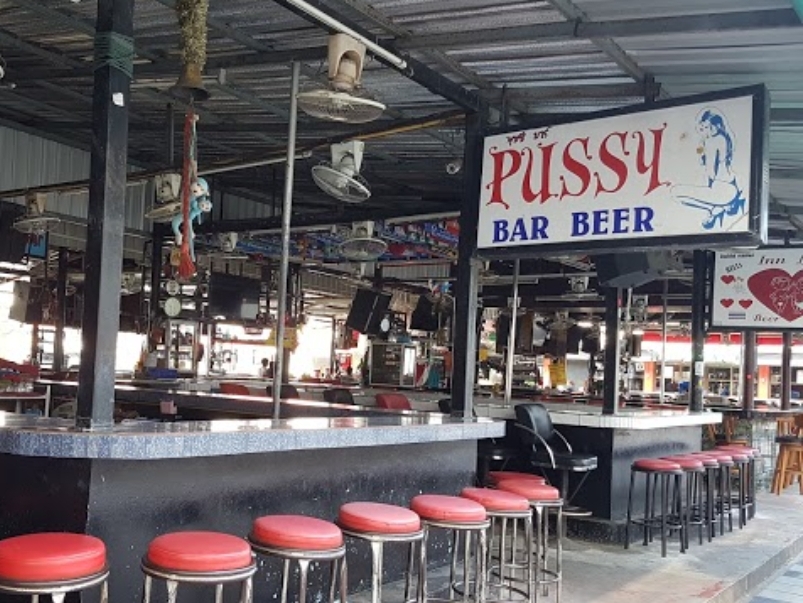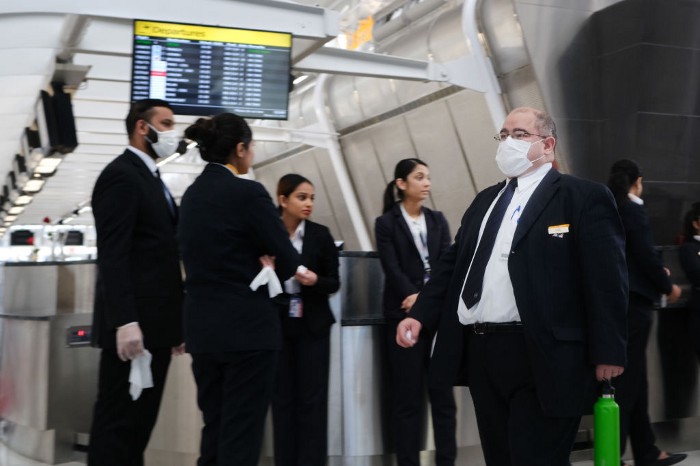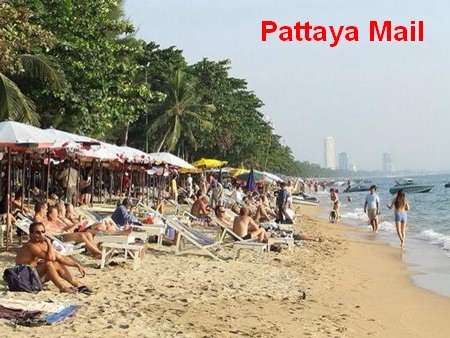
Nobody is suggesting that the holly and mistletoe-laden cash registers of Pattaya will be ringing as merrily this December as they did in 2019. Of course not. Everyone who gives a hoot has seen ad nauseam those press photos of deserted beaches and empty deck chairs. Not to mention all those for rent and for sale notices on umpteen bars, restaurants and also massage parlors – even those offering a full soapy experience in a bubble bath tub. No thanks.
But there are signs, here and there, that Christmas this year may not be quite as forlorn as the pessimists have predicted. Let’s start with the government and allied agencies. Both the Tourist Council of Thailand and at least one government minister have prophesied that at least 50,000 tourists will visit Thailand in the last quarter of 2020. A drop in the ocean, but a start. Meanwhile, Dr Theravet Hemachuda, head of the infectious diseases centre of the Red Cross, has supported the idea of reducing compulsory quarantine from two weeks to seven days in line. It might not happen. But it might.

The new government initiative the Special Tourist Visa (STV) starts next week with a charter plane of 150 Chinese from the city of Guangzhou. They are heading for Phuket but it’s apparently not the Phuket “model” we used to hear so much about. A similar size group from Scandinavia is expected mid-month en route to Ko Samui. If these experiments are successful without the wrath of a second Covid-19 outbreak – and yes it’s a big if – then expect to see more flights to Bangkok or even U-tapao in November. That should benefit Pattaya. A little anyway. City Hall here has been lobbying the government hard for a share in this potential tourist pie.
Meanwhile, some Thai embassies on their websites are now more confident about the future. The Helsinki one actually states that those Finns with an 0/A non-immigrant 12-months retirement visa, or wish to apply for one, can then request the all-important embassy-issued certificate of entry to fly to Thailand. This is the first time a Thai embassy has been specific about retirees potentially being able to enter Thailand. Or at least they can make the application.
The Thai embassy in London in its recently updated website now states specifically the airlines operating repatriation or semi-commercial flights. Previously only Thai Airways was singled out, but now the list also includes Eva, Emirates, Etihad, Qatar and Singapore Airlines. In a phone conversation, a Thai embassy official said that the embassy was awaiting further instructions about the Thai government’s recent announcement that “some” non-immigrant visa holders would qualify for entry as long as they could show the equivalent of 500,000 baht in home bank accounts for the last six months. Wait and see on this one. It could be quite a loophole.
Another noticeable softening has been in the references to the compulsory medical insurance worth at least US$100,000 on embassy websites. Initially it was stressed that such insurance must be issued by a Thai company and must cover all potential costs and not just those related to Covid-19 infection. It now appears, from information on the Thai embassy Washington DC website and several others, that equivalent non-Thai-issued insurance is acceptable provided it covers all claims arising if the policy holder catches the dread disease. Clarification has not yet been forthcoming, but there is a huge difference between insurance which is Covid-19 specific and that which is comprehensive but includes that infection.

It should be noted too that domestic tourism has already been a bright spot for Pattaya in the last few months. Encouraged by government-inspired discounts and special offers, thousands of Thai tourists are hitting the city especially on weekends and holidays. Added to that is the cash injection provided by Pattaya’s long-stay expats, thought to number up to 10,000, and the more numerous visa amnesty beneficiaries who can now stay until the end of November and likely longer if they so wish. The economic impact of this unexpected move by the immigration authority and the Thai Cabinet isn’t yet clear. Some estimates say there are 20,000-plus amnesty tourists still in the Pattaya area. Maybe.
Obviously mass tourism to Thailand is not just round the corner. It will remain elusive as long as the coronavirus stokes fears of a new outbreak here and the government’s CCSA (Centre for Covid-19 Situation Administration) requires potential visitors to jump through so many bureaucratic and expensive hoops as reported frequently by Thai and social media. But Pattaya’s future as a leisure resort isn’t looking gloomier after the events of the last week. Just a bit brighter.




